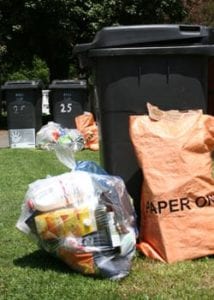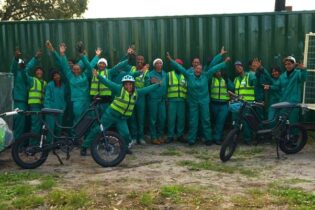Only 3.3% of South Africa’s households regularly recycle household waste, according to results from a CSIR study conducted in 2010. Another CSIR study also revealed that of the estimated 19 million tonnes of municipal waste generated in this country in 2011, approximately 25% were mainline recyclables such as glass, paper, tins and plastics.
According to the National Waste Management Strategy, all metropolitan municipalities, secondary cities and large towns will have initiated programmes for waste separation at source in three years’ time. Separating recyclables at household level is also a requirement of the Waste Act. CSIR principal researcher Dr Suzan Oelofse says the participation of households in these programmes will be crucial to achieving the 2016 target. However, the results of the survey show that municipal authorities face a daunting task to create public awareness around the requirements of the Waste Act. The study reveals two-thirds of the more than 2 000 urban South African households surveyed in 2010 do not know where to dispose of their household recyclables. Furthermore, the majority of the participants in the study said that they do not know how nor what to recycle.
The 2010 survey, aimed at understanding post-consumer recycling behaviour in South Africa, does not paint a very positive picture about urban South Africans’ attitude and behaviour when it comes to recycling:
• more than 73% of South Africans living in urban areas reported no recycling at all
• about 27% of urban South Africans reported some recycling behaviour; and
• only 3.3% of the respondents indicated that they sort most or all of the selected five recyclables from their household waste and recycle it on a frequent basis.







